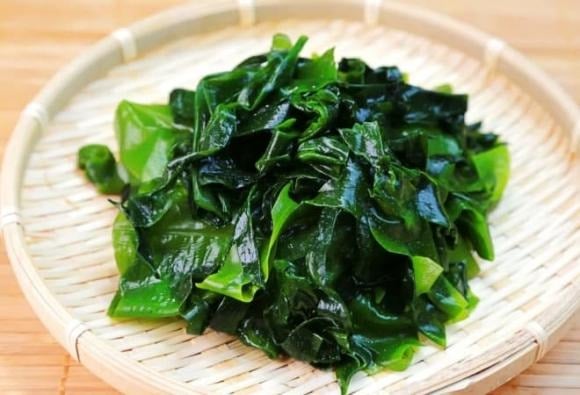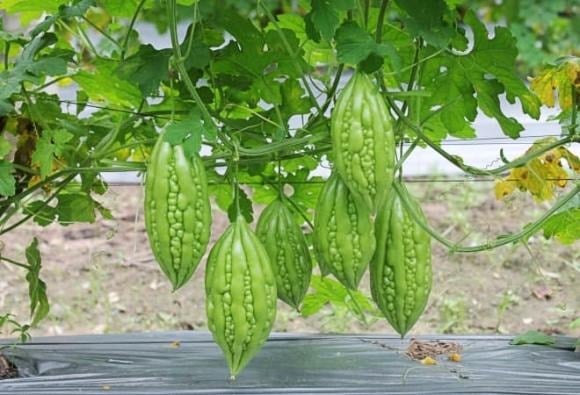The Japanese are renowned for their healthy diet, which includes minimal red meat and an abundance of fish and vegetables. But little is known that the secret to their longevity also lies in the humble, everyday vegetables. In particular, the following two vegetables are considered “natural elixirs,” contributing significantly to the robust health and impressive longevity of the people of the Land of the Rising Sun.
Okinawa, a southern island of Japan, has long been dubbed the “Island of Longevity” due to its highest proportion of centenarians globally. The average lifespan of Okinawan women reaches 86 years, while men boast a lifespan of 78 years. The secret to their long lives lies not only in the pristine environment and positive lifestyle but also in their low-calorie, nutrient-rich diet, focusing on vegetables, grains, and seafood.
Among these foods are two special vegetables favored by the Okinawans—one hailing from the ocean, rich in precious minerals, and the other bearing a bitter taste but packed with beneficial bioactive compounds, offering potent antioxidant, disease-preventive, and age-defying properties.
1. Seaweed—The Ocean’s “Elixir” in Japan’s Longevity Diet
Seaweed has long been an integral ingredient in the daily meals of Okinawans. Beyond being a traditional food, seaweed is considered one of the “golden secrets” to the Japanese’s exceptional health and longevity.
This aquatic vegetable boasts a rich nutritional profile, encompassing essential vitamins A, C, and E, along with minerals like calcium, iron, iodine, and powerful antioxidants such as flavonoids and carotenoids. These nutrients work in tandem to reduce inflammation, combat aging, safeguard cells from free radical damage, and promote cardiovascular health.

Research from Kyoto University substantiates that regular seaweed consumption can lower blood pressure and mitigate the risk of stroke in individuals with cardiovascular disease. Notably, Mozuku brown seaweed, an Okinawan specialty, contains fucoidan, a bioactive compound with potential cancer-preventive properties, currently under extensive investigation in modern medicine.
The Okinawans often incorporate seaweed into their diets by preparing miso soup, salads, sashimi accompaniments, or snacks like roasted seaweed. These preparations not only retain the nutritional value but also create palatable dishes suited to diverse tastes.
However, for those unaccustomed to seaweed’s subtle fishy flavor, the key is to experiment with incorporating seaweed into soups, salads, or even roasting it to a crisp—a tasty and accessible way to reap its health benefits.
2. Bitter Melon—A “Bitter-Sweet” Vegetable for Longevity
Bitter melon (known as Goya in Okinawan) is a cornerstone vegetable in the nutrient-dense diet of the Okinawans, who are renowned for their extraordinary longevity. Despite its distinctive bitter taste, which may deter some, bitter melon boasts a plethora of health advantages.
This vegetable is replete with flavonoids, potent antioxidants that aid in cell regeneration, reduce inflammation, and decelerate the aging process. Research from New York University further reveals that bitter melon aids in blood purification, detoxification, enhanced digestive function, and improved blood circulation, thereby mitigating the risks associated with cardiovascular ailments such as angina, heart attacks, and atherosclerosis.

Notably, bitter melon excels in regulating blood sugar levels and is invaluable in preventing and managing diabetes, a prevalent health concern today. The Okinawans commonly incorporate bitter melon into their traditional dish, Gōyā chanpurū, a mélange of tofu, eggs, vegetables, and tuna or meat—a delicious and nutritious treat.
In Vietnam, bitter melon is readily available, affordable, and versatile in the kitchen, lending itself well to soups, stir-fries with eggs, or stuffed with meat. Incorporating bitter melon into your daily diet not only detoxifies the body but also bestows benefits for cardiovascular health, physique, and overall wellness—a tradition the Okinawans have wisely upheld across generations to sustain their remarkable longevity.
































